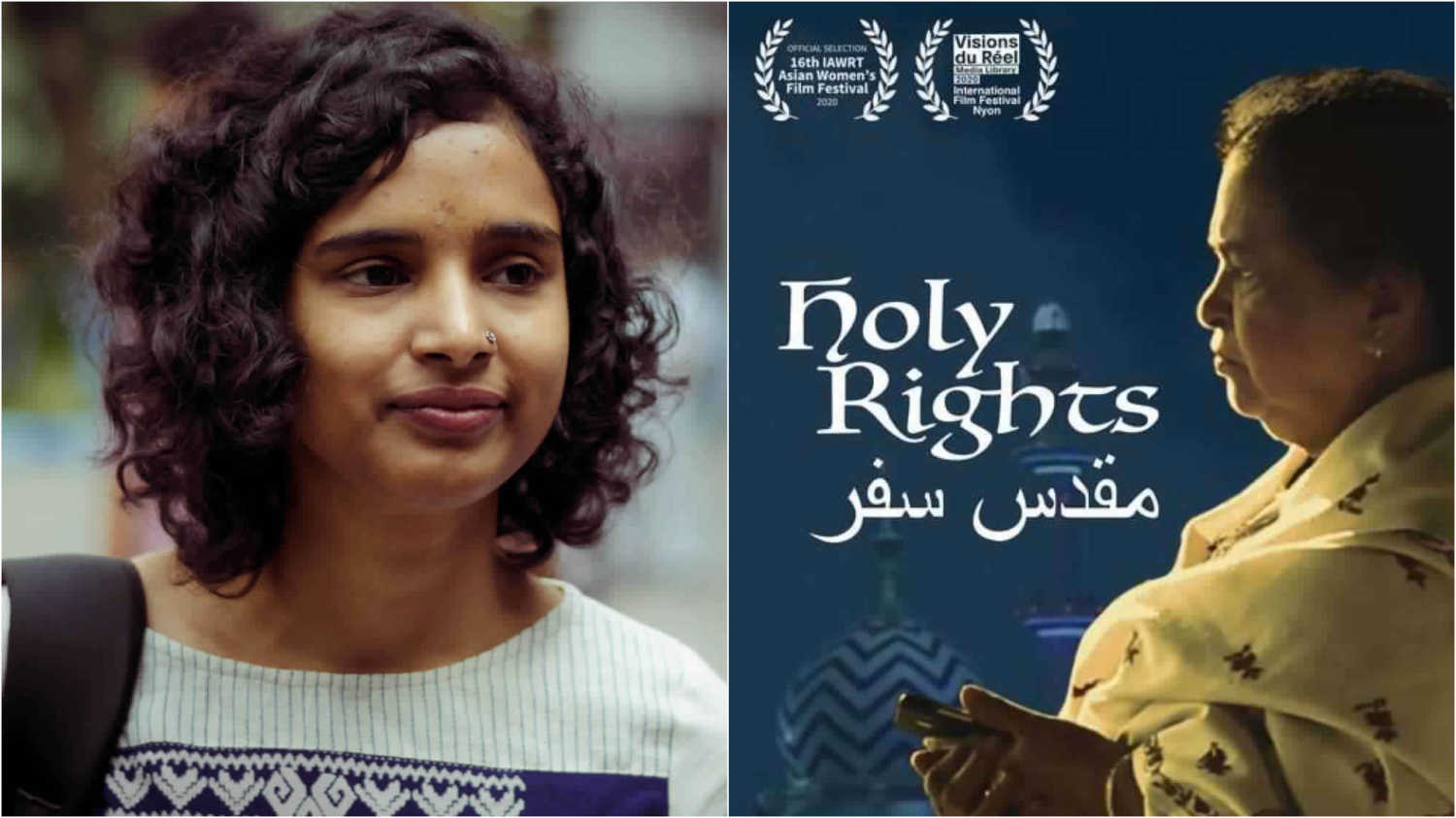The film follows Safia Akhtar from Bhopal, Madhya Pradesh who joins a programme that trains women as qazis.
Used to wonder if the Quran is really gender biased, says Farha Khatun on the quest that led to Holy Rights
New Delhi - 16 May 2020 9:00 IST
Updated : 12:55 IST


Sukhpreet Kahlon
The documentary Holy Rights follows the journey of Safia Akhtar, a deeply religious Muslim woman from Bhopal, Madhya Pradesh who joins a programme that trains women as qazis (Muslim clerics who interpret and administer the personal law), a traditionally male preserve.
The film documents her journey as she negotiates an uncharted territory, exploring the tensions that arise when women try to change the status quo and take control of narratives that so deeply affect their lives.
Directed by Farha Khatun, the documentary was screened at the International Association of Women in Radio and Television (IAWRT) Asian Women’s Film Festival in New Delhi earlier this year. Khatun’s directorial debut, I Am Bonnie (2017), was awarded the National award for Best Film on Social Issues and won the Best Documentary award at the Kolkata International Film Festival. While the filmmaker has engaged with gender issues in her earlier works, she spoke of Holy Rights being a personal film.

“The Quran is written in Arabic and we [most people] don’t know Arabic, so 99% of the people depend on the maulanas or qazis… they interpret the language…so people do not have the real knowledge about what the Quran actually says. I wanted to explore this, especially since I grew up in a conservative Muslim society and all my life I used to wonder if the Quran is really this gender biased? That’s why I started on this quest about knowing more,” she said.
Holy Rights concentrates on this aspect of truly understanding the verses in the Quran, instead of going by the translations offered by clerics. The shooting of the documentary began in 2015 and it tracks the moments leading up to the criminalization of triple talaq in India in 2019.
In fact, the film does not feature any cleric talking about the Quran, instead it concentrates on the gender bias perpetrated in the name of the holy book. Speaking about this, Khatun said, “I thought that all of us know about them [the clerics] and see a lot of their voices in media and around us, so let us see other voices in the film… I also consciously chose to not make one person the villain. It’s all about the practice. Everybody is part of this misinterpretation.”
Through the film, Akhtar gives examples of verses in the Quran that speak about the rights of women, while the clerics choose to focus only on the duties. The film takes us into her life, as we understand her struggles - both inside and outside her home, as well as her endeavor to inform more and more women about their rights.
Khatun said, “This film was not only about Safia Apa but my exploration of what religion says, how people see it and how it affects the gender bias in society and how women suffer.”

Khatun also chose not to concentrate on details of the organization, Bharatiya Muslim Mahila Andolan or BMMA, even though it features as a significant part of the film. She responded, “We can all read about the organization, but we don’t get to see how much risk they [the workers] are all undertaking. So I focused on their practical work… The women who have faced triple talaq… they have such difficult stories, as you see in the film…these things are really tough to deal with, emotionally.”
Speaking about the audience response to the film, she said, “People came and said that this film changed a lot about what they thought about Muslim society and Muslim women. Apart from festivals, we want to screen the film in small places, talk to people and begin a conversation. We may even get in touch with NGOs and have a conversation around it.”
Holy Rights is also a response to rising Islamophobia and the growing violence against women, attempting to foreground the struggle of Muslim women as they fight both within and outside their communities for their rights.
Related topics
IAWRT Asian Women's Film Festival


